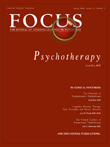Cognitive Behavior Therapy: Basic Principles and Recent Advances
Basic principles of CBT
The CBT model
Mr. A, a 35-year-old computer programmer who lives and works in a suburb of a large city, requested treatment for panic disorder with agoraphobia. He had been symptomatic for at least 5 years. His condition had deteriorated to the point where he was largely housebound, although he was able to drive about half a mile to his workplace, where he worked in a cubicle and had little social contact. When Mr. A considered driving to the city to see an old friend or to a mall near his home, he would have thoughts such as “I can’t do it . . . I’ll faint or I’ll have a heart attack . . . I’ll panic and lose control . . . I’ll have a wreck and kill everyone in my path.” As might be expected, he had intense anxiety and autonomic arousal associated with these thoughts. His behavioral response was to avoid driving anywhere other than work and to avoid going anywhere there might be crowds. Each time he avoided these activities, his basic fears were reinforced, and eventually his symptoms became deeply ingrained.
Levels of cognition
Key behavioral concepts
CBT applications
CBT methods
General procedures
Cognitive methods
Behavioral methods
Computer-assisted CBT
Summary
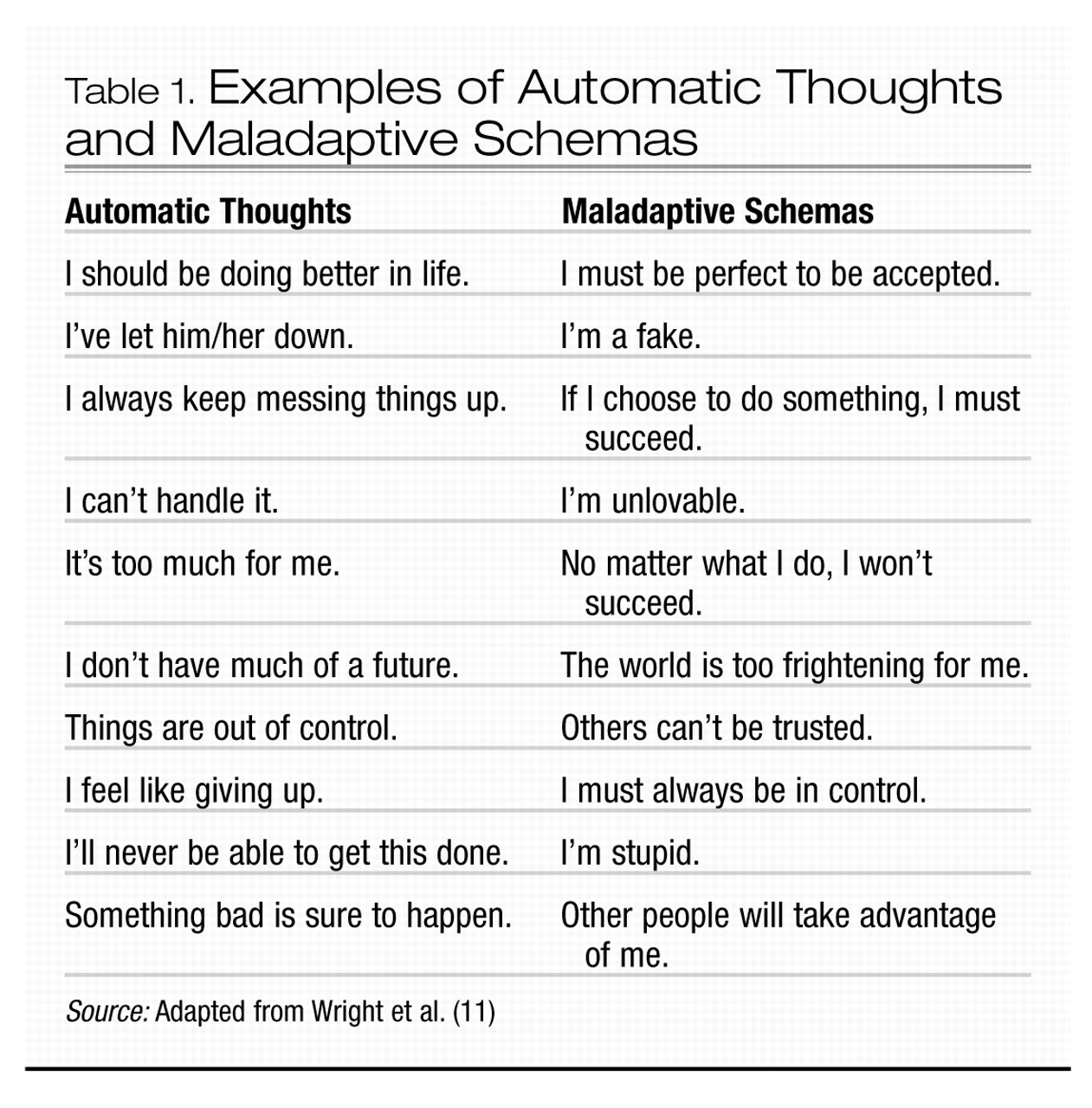
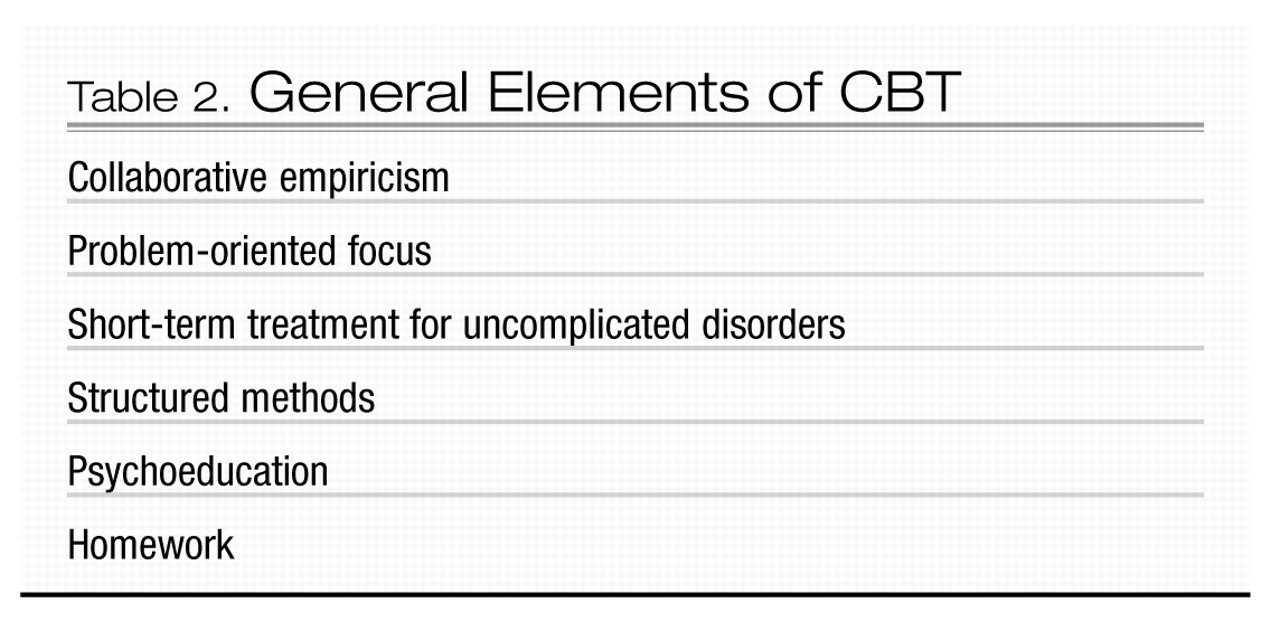
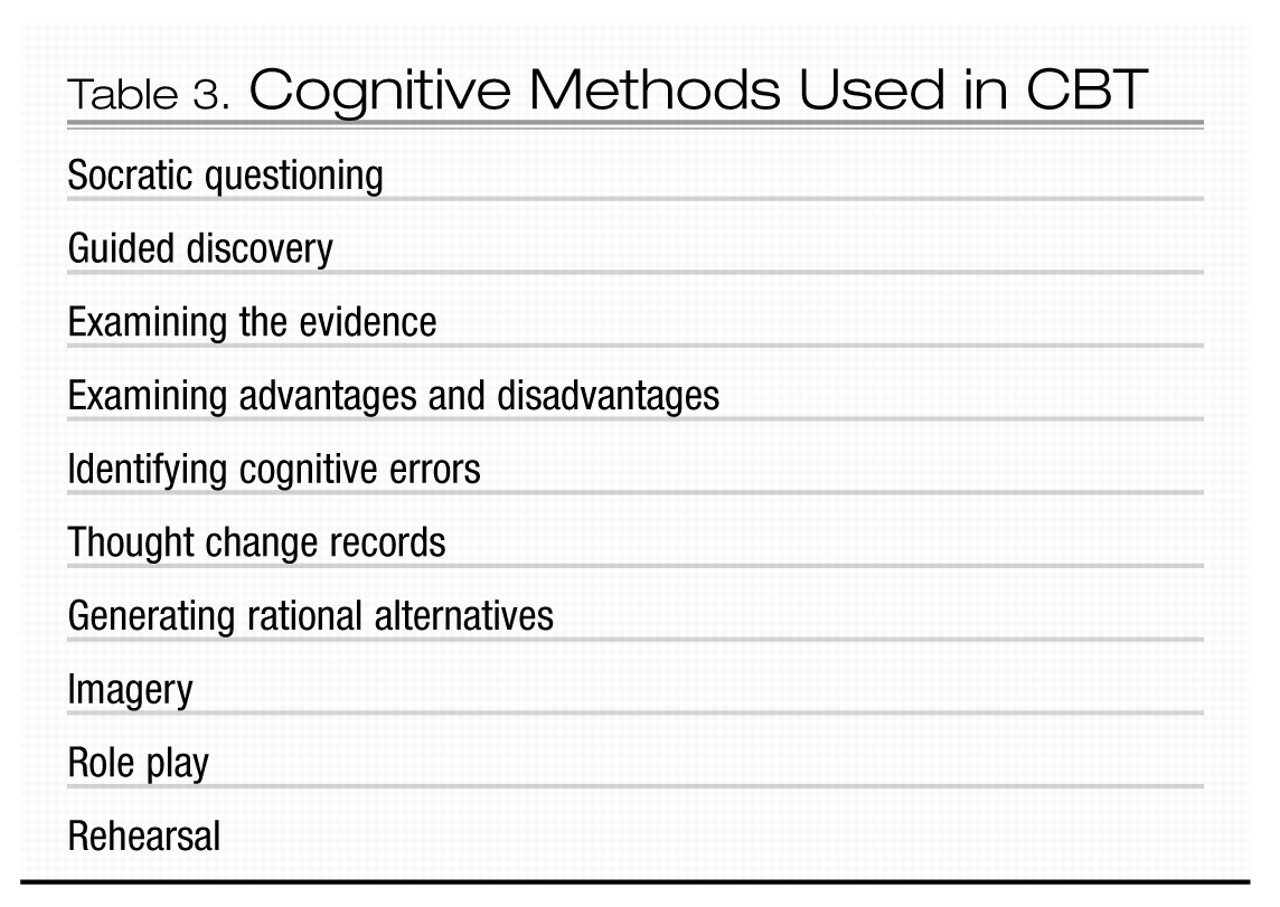
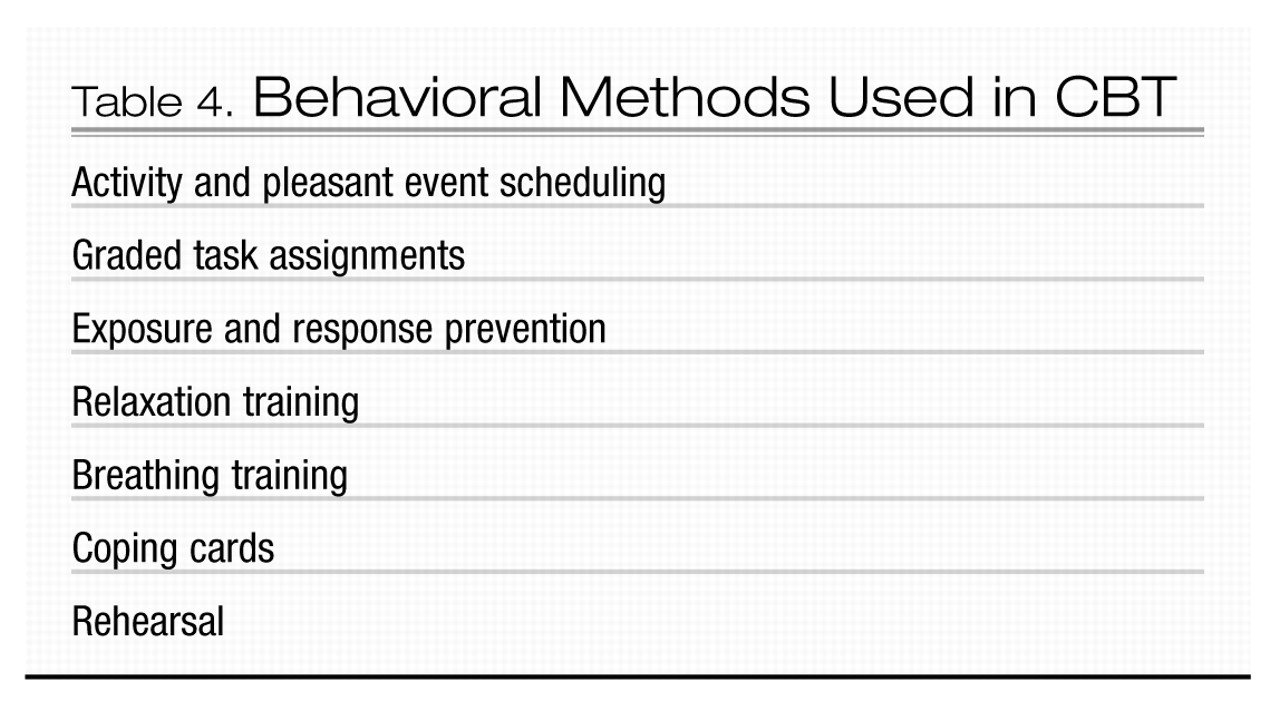
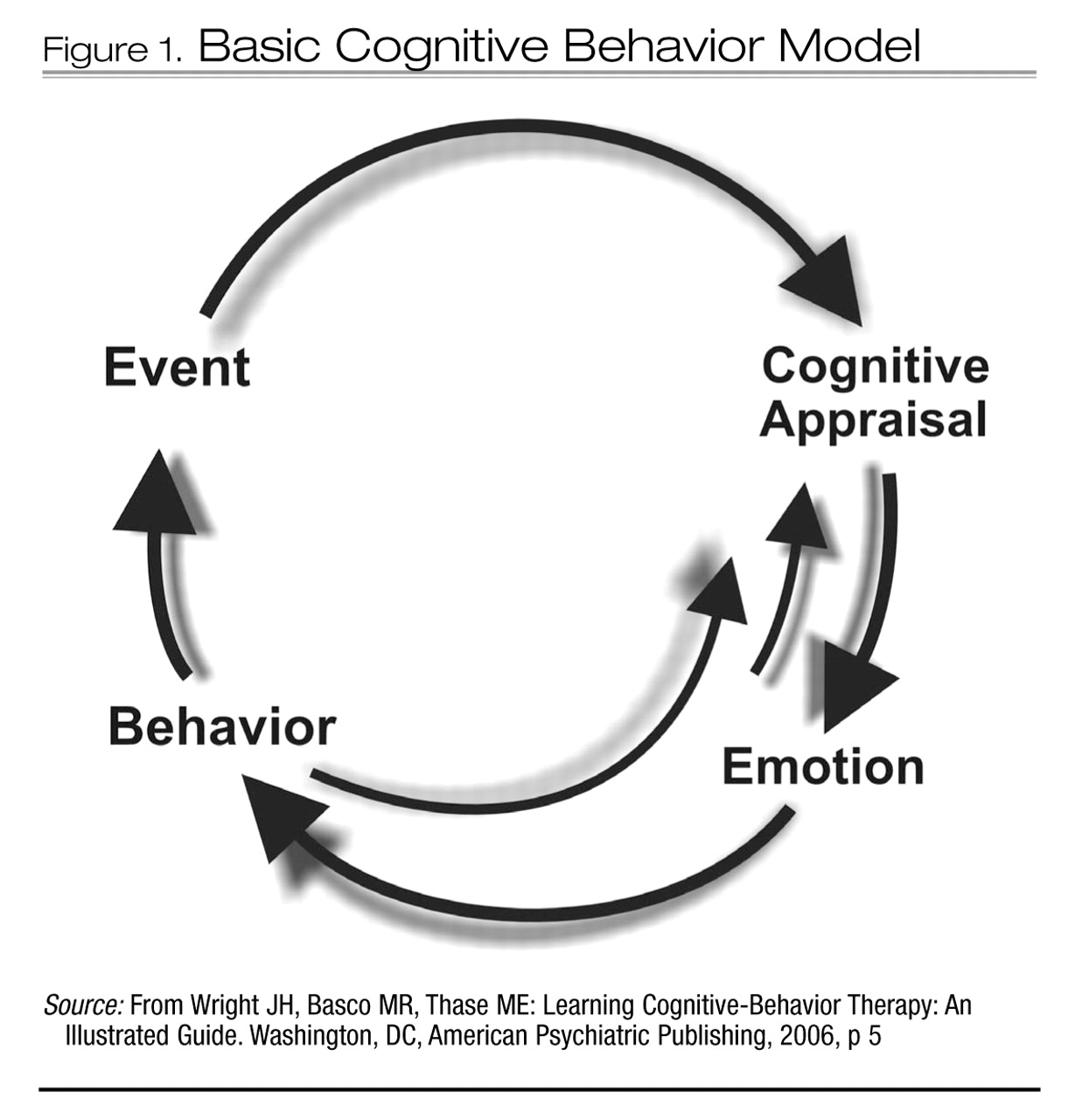
Footnotes
References
Information & Authors
Information
Published In
History
Authors
Metrics & Citations
Metrics
Citations
Export Citations
If you have the appropriate software installed, you can download article citation data to the citation manager of your choice. Simply select your manager software from the list below and click Download.
For more information or tips please see 'Downloading to a citation manager' in the Help menu.
View Options
View options
PDF/EPUB
View PDF/EPUBGet Access
Login options
Already a subscriber? Access your subscription through your login credentials or your institution for full access to this article.
Personal login Institutional Login Open Athens loginNot a subscriber?
PsychiatryOnline subscription options offer access to the DSM-5-TR® library, books, journals, CME, and patient resources. This all-in-one virtual library provides psychiatrists and mental health professionals with key resources for diagnosis, treatment, research, and professional development.
Need more help? PsychiatryOnline Customer Service may be reached by emailing [email protected] or by calling 800-368-5777 (in the U.S.) or 703-907-7322 (outside the U.S.).
